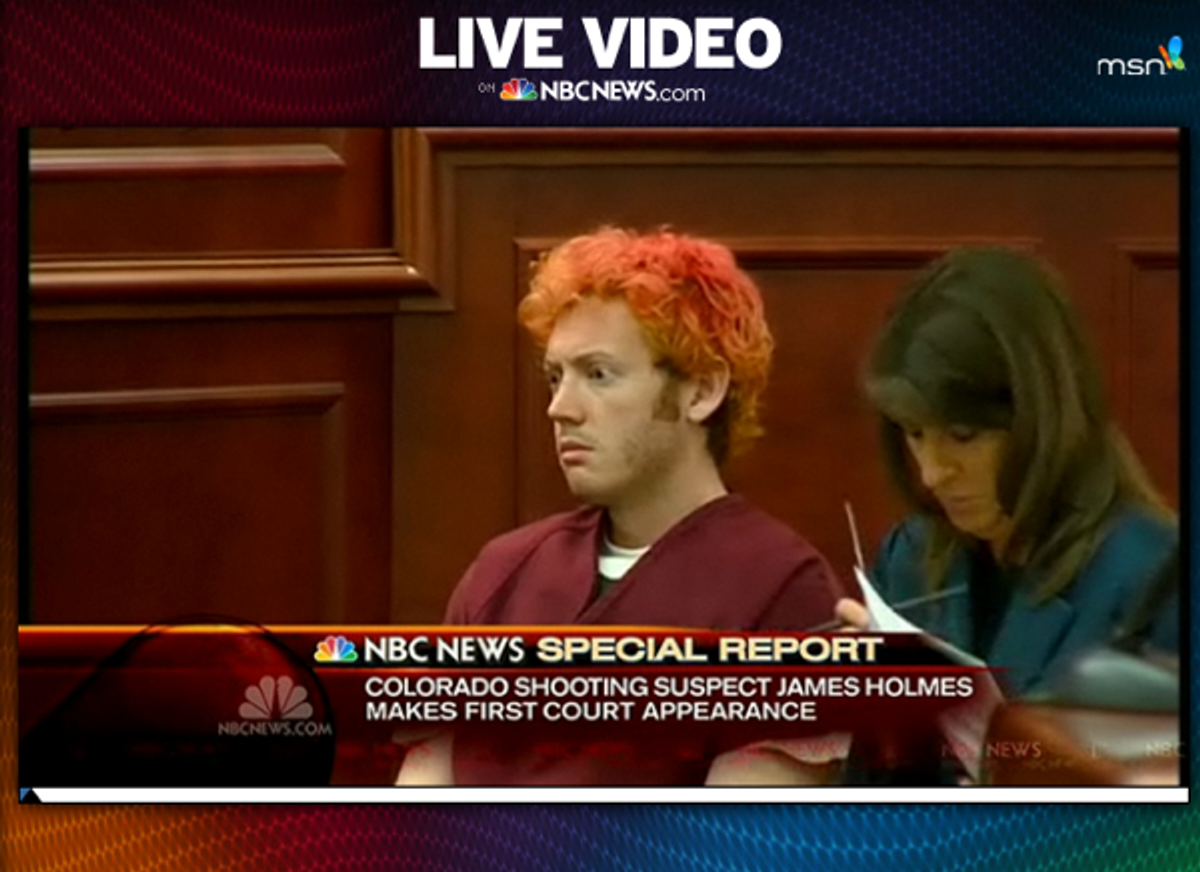Dennis Scimeca is a straight white man. He has been playing violent, gore-splattered video games for most of his life. And at 15, he was diagnosed as bipolar.
He is every bit the profile we've created for the mass shooter.
And he knows it.
In an essay for video game website Kotaku, Scimeca writes:
People speculate that violent games and mental illness mix badly. They theorize that the former exacerbates the latter.
I can't listen to conversations about mental illness and violent video games -- all the speculation that those games could inspire the mentally ill to commit these atrocities -- and not think that these people are also talking about me.
How could he not? Growing up as a young, manic kid in a post-Columbine era, he has, for years, seen his "type" splashed across headlines as a nation tries to make sense of incomprehensible violence. Scimeca understands, perhaps better than most, how fraught these psychological profiles really are. How the story is always much more complicated than having too few friends and playing too much "Halo 3."
So he went ahead and said it: "I'm mentally ill, I've gorged on violent video games my entire life, and they've never made me feel like doing harm to another human being."
He's not alone in thinking that the narrative of the loner kid angry at the world doesn't cut it when it comes to preventing tragedies.
"Even when you pull the pieces together, they really don't add up," Mary Muscari, a forensic nurse at Binghamton University in New York, recently told Live Science. Adding, "In the end, the spark that drives people to violence is unknown, and the events are rare enough that it's hard to generalize from case to case. There are certainly a lot of people who have a lot of things go wrong, and they're not committing mass murders. Even when you look at mental illness, most people with mental illness are not violent."
For every Metallica fan who commits an act of violence, there are millions who don't. For every "Call of Duty" player who goes on to kill someone, there are millions who won't.
In fact, as Scimeca notes, for many young men, interests considered antisocial by many can be a vital source of community and friendship:
What I would mostly come to feel when I played FPS games was camaraderie, because, as years passed, I mostly played them online with my friends. They now feel like what playing hide-and-seek or tag felt like when I was little. My favorite game of last year was a first-person shooter—Borderlands 2—because I could jump into an Xbox Live party chat with my friends and talk about our day while we shot things. The aiming and jumping and reloading sometimes felt autonomic and the least important part of the experience.
As shockingly common as mass shootings may seem, they're extremely rare from a scientific perspective, which is why creating a profile based on available data is so difficult.
That doesn't mean we can't talk about preventing tragedies before they happen, says Scimeca. But it will take a far more holistic approach to gun control, mental health services, and reversing cultural trends that celebrate violence and leave many young men feeling isolated and angry. "It's not so much to catch shooters, because we know that's very difficult, but actually to address very widespread problems that reach millions of kids," Katherine Newman, a sociologist at Johns Hopkins University who has studied high-school and university shootings, told Live Science.
Scimeca would certainly agree:
What might have made me a school shooter in some other reality would have been whether I was lonely, or whether anyone was paying any attention to the fact that I was in constant pain, or whether I could have easily laid my hands on a lot of guns, and I'm very glad that in my case none of those things were true.

Shares